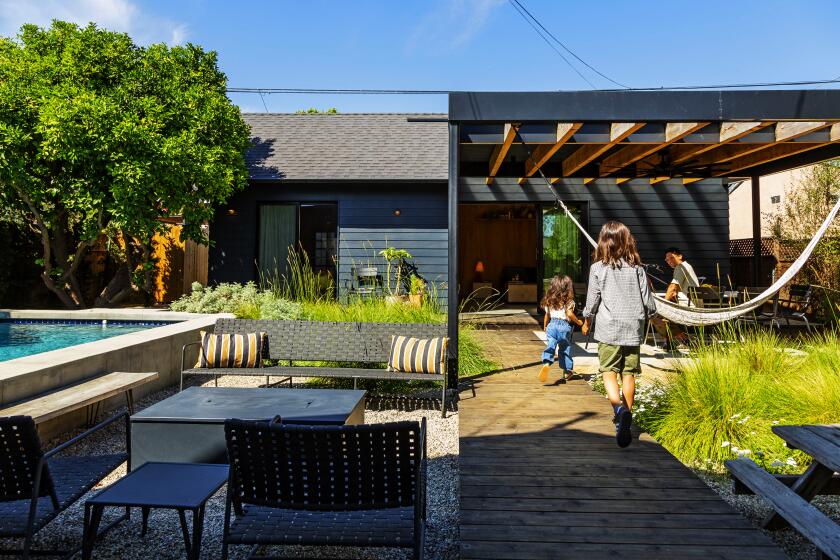Fast-Tracking of City Projects Is Defended : Thousand Oaks: Council rejects a request to send all public developments to Planning Commission for review.
- Share via
Angrily defending the practice of fast-tracking city projects, Thousand Oaks’ ruling majority has rejected a request by Councilwoman Jaime Zukowski to submit all public developments to Planning Commission scrutiny.
On the theory that public buildings, such as the library and youth center, are usually one-of-a-kind, the City Council has traditionally taken full control of the projects’ design and development.
Instead of sending the blueprints to the Planning Commission for review, the council has taken charge of the projects from start to finish, gathering citizen input through informal town meetings and holding a single public hearing.
Zukowski has argued that such a system is unfair because private developers must submit to a lengthy permit process, including a Planning Commission hearing.
Bolstering her position with documents during a heated half-hour debate Tuesday night, Zukowski cited a line from the city’s legally binding General Plan.
“Review of the architectural treatment of a proposed public building should be carried out in a manner similar to that used for private structures,” she read. “This will probably involve evaluation by the staff with Planning Commission or City Council referral of selected buildings to an advisory committee.”
In response, council members Judy Lazar, Frank Schillo and Alex Fiore said they felt confident that all public projects receive adequate review from both experts and residents, even without Planning Commission hearings.
They pointed out that only the council has the authority to waive Thousand Oaks’ stringent design standards, and to approve the unique architecture, colors or landscaping that make public buildings special.
The Planning Commission judges projects based strictly on their adherence to city codes, and would be automatically obligated to turn down most public developments, they said.
“Public buildings, by their nature, are going to look different, and are not going to fit into our codes,” which were designed for strip malls and tract homes, Schillo said. “Public buildings are not going to be a box with two stories and a flat roof.”
Fiore agreed, saying: “We have a process that has served us well over the years. Frankly, I don’t want to delegate these projects to the Planning Commission.” But Zukowski, backed by Mayor Elois Zeanah, suggested that Planning Commission review could have picked up some flaws in the design of existing public projects.
*
For example, she said, the commissioners may have questioned whether the five-story garage contained enough parking spaces for the Civic Arts Plaza. Now that the complex is near completion, city officials have conceded that the garage will not provide enough room for cars during sold-out performances at the 1,800-seat theater.
“In future public projects, (we should) absolutely do what is required of the private sector,” Zukowski said. “It’s just a safeguard, to be sure that we’re not put in the position of judging something without adequate information and input.”
More to Read
Sign up for Essential California
The most important California stories and recommendations in your inbox every morning.
You may occasionally receive promotional content from the Los Angeles Times.










